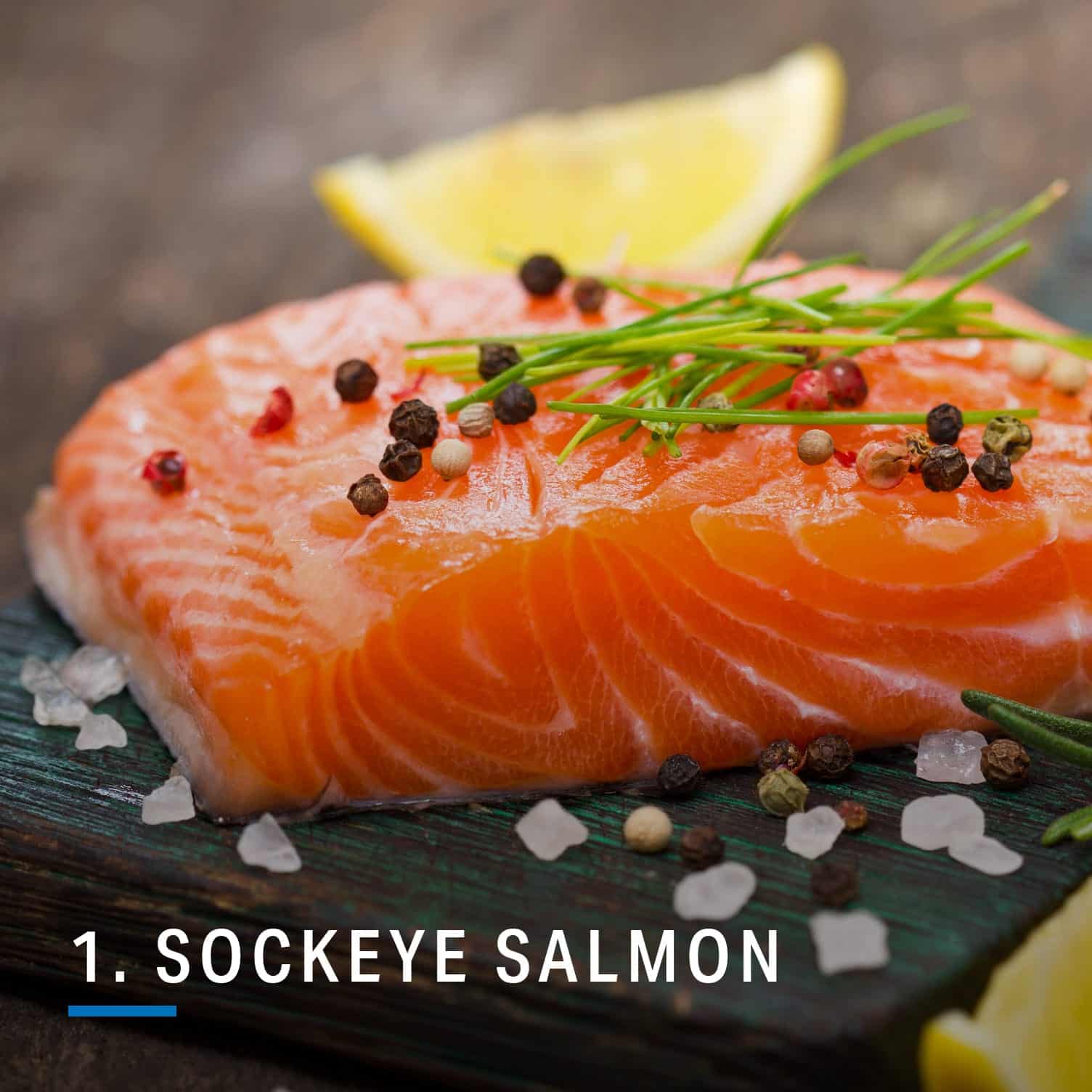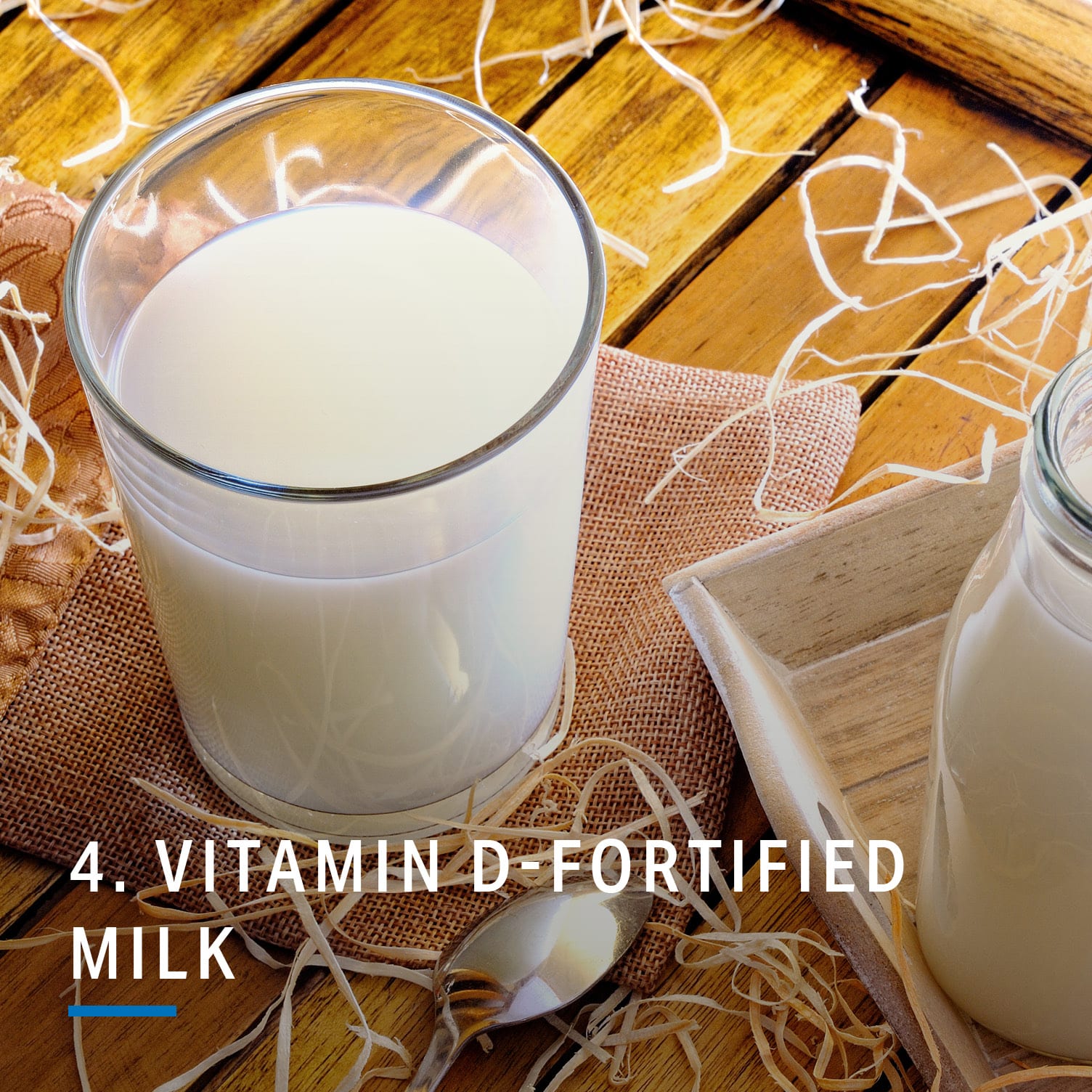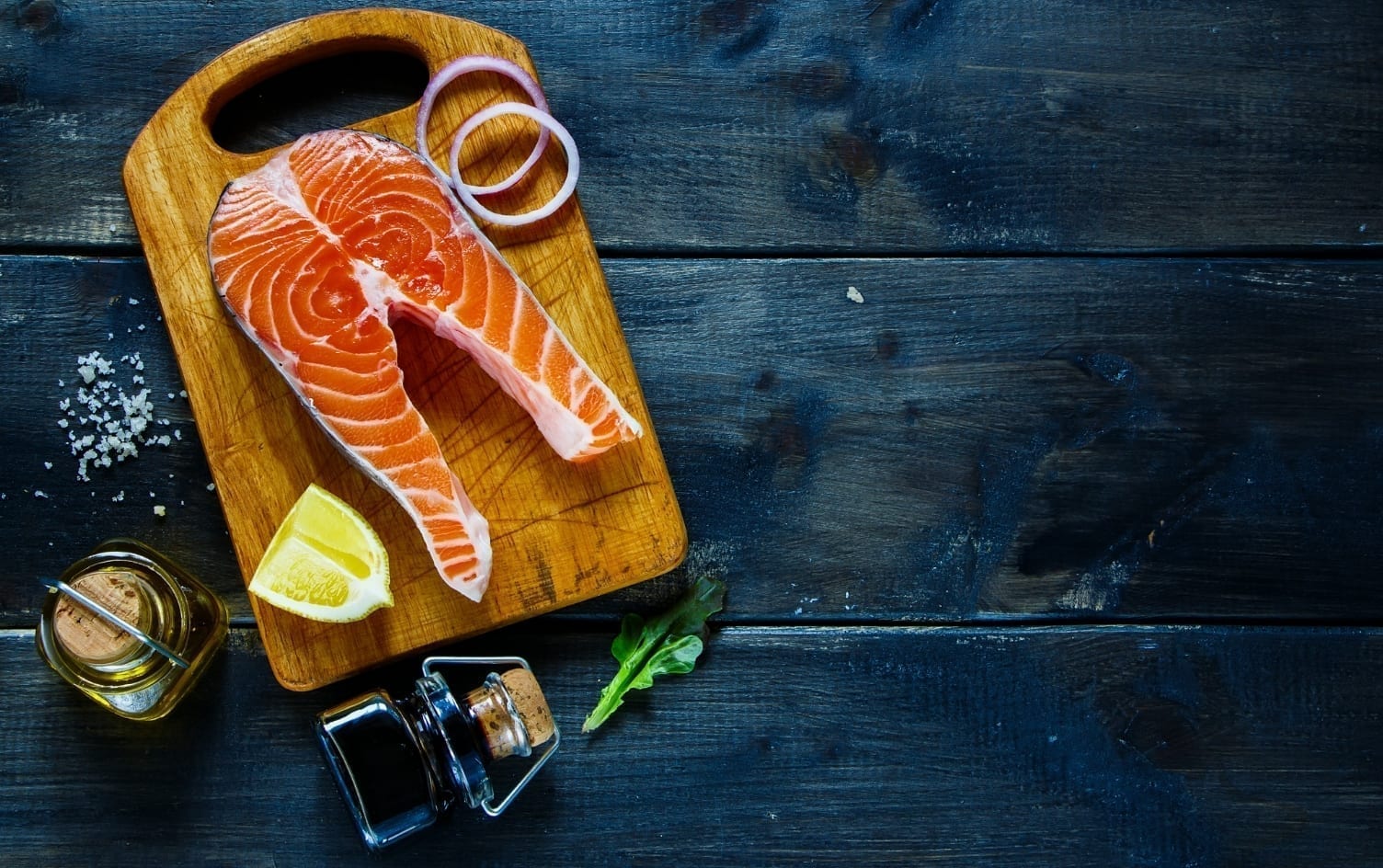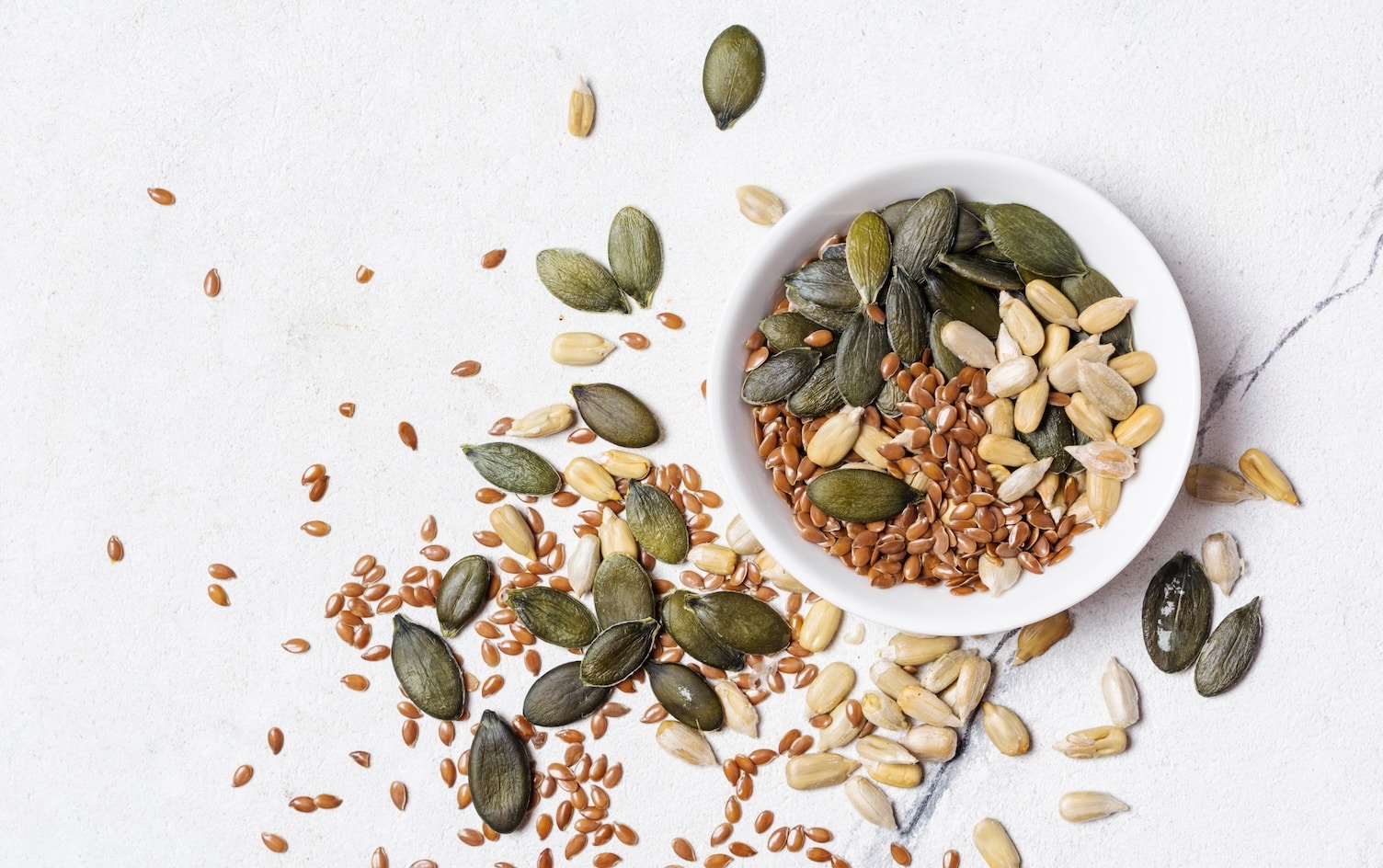It’s normal to hibernate inside and crave hearty soups and stews and warm comfort foods when it’s cold out. But less sunlight exposure means our bodies make less vitamin D, an important nutrient for bone health, regulating immunity, reducing inflammation and boosting neuromuscular function. Rather than reaching for a vitamin D supplement, (which doesn’t have the fiber and other micronutrients you’d find in whole foods), add these five items to your diet:

This pink-hued fish is one of the best food sources of vitamin D with 447 IUs (75% DV) per 3-ounce serving. Salmon is also a rich source of heart-healthy omega-3 fats, protein, B-vitamins, phosphorus and selenium, which support everything from brain health to immunity. Try topping a big winter salad with pan-fried salmon or make this savory smoked salmon and Brussels sprouts scramble.

This pantry staple provides 154 IUs of vitamin D (26% DV) per 3-ounce serving and is a versatile and affordable source of the sunshine vitamin. Like salmon, tuna is a source of protein, anti-inflammatory omega-3 fats, B-vitamins, phosphorus and selenium. Whip up a quick tuna salad and spread it over apple slices or mix it into a hearty salad to enjoy a dose of vitamin D.

These mushrooms have a distinctive ‘frilly’ appearance and offer 393 IUs of vitamin D (66% DV) per 1/2 cup serving. Also known as ‘hen of the wood’, preliminary studies suggest that maitake have anti-cancer and anti-diabetic properties. Add maitakes to winter soups and stir-fries or dice them and add to pasta sauce to enhance the flavor.

Vitamin D-fortified milk provides 115–124 IUs (20% DV) of vitamin D per cup. Make a batch of hot chocolate at home with vitamin D-fortified milk or start your day with oats cooked in milk to stay warm (and get adequate vitamin D) this winter. Go for reduced-fat milk or whole over fat-free. Vitamin D is a fat-soluble vitamin and milk with at least some fat remaining is a better delivery vehicle.

A lesser known source of vitamin D, two eggs provide 82 IUs (11% DV) of vitamin D, as well as high-quality protein, B-vitamins, phosphorus, selenium, choline and a little iron. Enjoy a quick egg sandwich for breakfast or try one of these delicious recipes.




